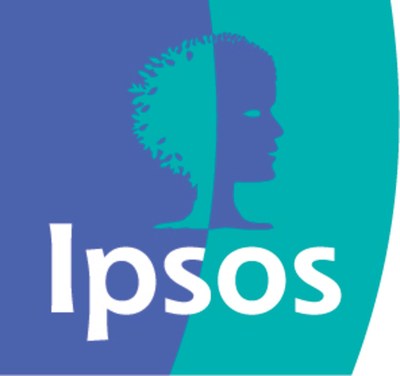|
25.04.2023 18:04:00
|
Researchers at Ipsos, the University of Chicago, and University of Michigan present new analysis on the lifesaving impact of public safety early warning systems in Ukraine
Public safety alerts have saved countless lives in Ukraine — but lose effectiveness over time, according to new study
NEW YORK, April 25, 2023 /PRNewswire/ -- Researchers from Ipsos, the University of Chicago, and the University of Michigan have produced the first comprehensive study on the effectiveness of government air raid alerts during the conflict in Ukraine, finding that as many as 35-45% of casualties have been prevented in the first few months of the war through heightened public responsiveness and the Ukrainian government's effective communications strategy.
The paper, which pairs an innovative methodology with the authors' deep geopolitical expertise, appears today in the Proceedings of the National Academy of Sciences(PNAS), one of the world's most prestigious and frequently cited interdisciplinary journals.
Co-authors Mark Polyak, President of Analytics at Ipsos, Austin L. Wright, Assistant Professor at the University of Chicago, and David Van Dijcke, PhD student in Economics at the University of Michigan, have provided substantial evidence that policymakers must sustain and adapt their messaging during prolonged conflicts in order to keep civilians safe.
This study provides valuable lessons not only for the Ukrainian government, but for another 39 countries that have developed similar early warning systems. "What combination of messaging and technologies is likely to work in conflict conditions, and how to measure the effectiveness of these strategies, is key to avoiding civilian casualties, especially as geopolitical tensions continue to rise in the post-Soviet space," said Ipsos' Mark Polyak.
Like many other nations around the world, Ukraine has developed a hybrid early warning air alert system that combines a smartphone application with conventional air sirens to urge citizens to take shelter during military operations. Yet large scale population behavior in response to these warnings has gone underexamined until now. How do citizens respond immediately after receiving an alert? Do their response times change as a conflict persists? How should government communications change to continue providing effective messaging as "alert fatigue" sets in?
With these questions in mind, the authors examined responses to the more than 3,000 civilian alerts through high-frequency geolocation pings tied to 17 million anonymized mobile devices, representing 60% of the connected population in Ukraine.
The analysis indicated that public safety interventions play a crucial role in keeping non-combatants from harm — but it also revealed that this responsiveness tapers off over time, which can be attributed to the gradual normalization of risk in wartime environments. Researchers concluded that between eight to fifteen percent of casualties could have been avoided through heightened public response.
This "alert fatigue" presents a considerable challenge for public safety. The University of Chicago'sAustin Wright points out that "decreasing public responsiveness is a cause for concern, with potentially large losses tied to this shift as the war continues and we see shift to increased utilization of unmanned aerial raids."
In order to minimize harm without hindering economic and social activity, the authors suggest, policymakers must develop targeted messaging that heightens the public's awareness of potential risks. Even small increases in responsiveness and urgency could play an outsized role in reducing the loss of life.
"One thing that struck me is how alert fatigue persists along various dimensions, even when we account for the different ways in which people may have adapted to the wartime situation," the University of Michigan's David van Dijcke noted.
"At the same time, it does not seem like the fatigue is unavoidable. On days where the Ukrainian government sent out special announcements about the war, people responded much more strongly to the alerts, which underlines the important role the Ukrainian government has played in sustaining the public's morale and hope during this tragic invasion."
ABOUT IPSOS
Ipsos is one of the largest market research and polling companies globally, operating in 90 markets and employing over 18,000 people.
Our passionately curious research professionals, analysts and scientists have built unique multi-specialist capabilities that provide true understanding and powerful insights into the actions, opinions and motivations of citizens, consumers, patients, customers or employees. Our 75 solutions are based on primary data from our surveys, social media monitoring, and qualitative or observational techniques.
Our tagline "Game Changers" sums up our ambition to help our 5,000 customers move confidently through a rapidly changing world.
Founded in France in 1975, Ipsos has been listed on the Euronext Paris since July 1, 1999. The company is part of the SBF 120 and Mid-60 indices and is eligible for the Deferred Settlement Service (SRD). ISIN code FR0000073298, Reuters ISOS.PA, Bloomberg IPS:FP www.ipsos.com
![]() View original content to download multimedia:https://www.prnewswire.com/news-releases/researchers-at-ipsos-the-university-of-chicago-and-university-of-michigan-present-new-analysis-on-the-lifesaving-impact-of-public-safety-early-warning-systems-in-ukraine-301807110.html
View original content to download multimedia:https://www.prnewswire.com/news-releases/researchers-at-ipsos-the-university-of-chicago-and-university-of-michigan-present-new-analysis-on-the-lifesaving-impact-of-public-safety-early-warning-systems-in-ukraine-301807110.html
SOURCE Ipsos
 Der finanzen.at Ratgeber für Aktien!
Der finanzen.at Ratgeber für Aktien!
Wenn Sie mehr über das Thema Aktien erfahren wollen, finden Sie in unserem Ratgeber viele interessante Artikel dazu!
Jetzt informieren!
Nachrichten zu IPSCO Inc.mehr Nachrichten
| Keine Nachrichten verfügbar. |
